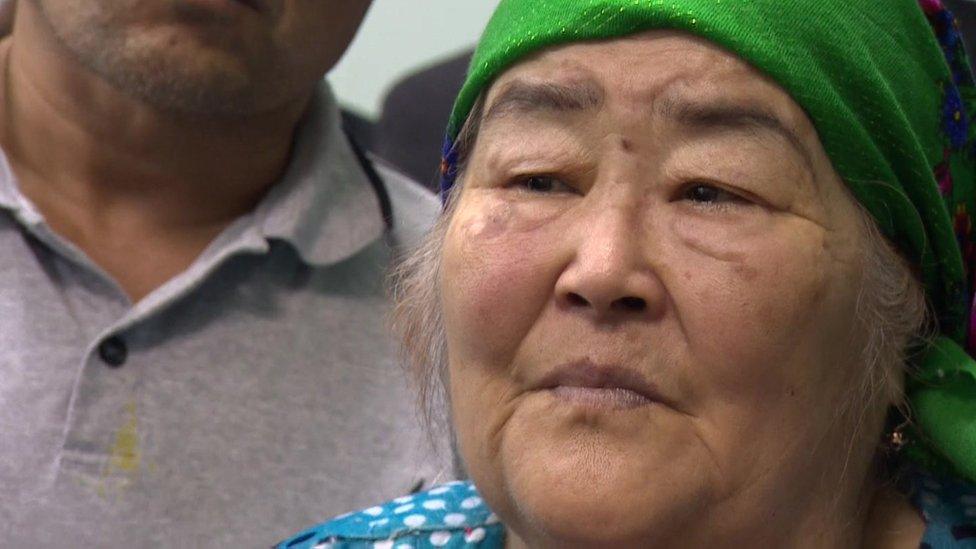Ali Feruz: Deportation reprieve for Uzbek journalist in Moscow
- Published
Mr Feruz said he was tortured in Uzbekistan
A journalist facing deportation to Uzbekistan has told the BBC he faces a "long, slow death" if he is returned there forcibly from Russia.
Ali Feruz, who has been living in Moscow since 2011 and seeking asylum, was in court to appeal against his expulsion.
He fled Uzbekistan after he says the country's security service kidnapped and tortured him, to try to force him to act as an informer.
The journalist is also openly gay. In Uzbekistan, that's a crime.
A Russian judge has now halted the deportation process while the European Court of Human Rights reviews the case.
"They will kill me, I am sure," Mr Feruz told the BBC as he awaited the ruling. "International reports have shown the situation in Uzbekistan, and how people are tortured and killed. I don't intend to go back. I'd rather kill myself," he said.
European Court blasts Russia 'gay propaganda' law
After Karimov: How does Uzbek transition of power look?
European diplomats were in court to hear the judgement. Amnesty International has warned, external that being a gay, human rights activist was a "near lethal combination" in Uzbekistan, where it described "overwhelming evidence of the risk of torture".
Amnesty has previously claimed that large numbers of asylum seekers are being forcibly returned by Russia to Uzbekistan, a close ally, despite the risk of abuse.
Last week, Kremlin spokesman Dmitry Peskov described Ali Feruz's case as "very complex" and said the authorities could not "close their eyes to a whole series of violations".

Mr Feruz's mother had travelled for three days to attend the court hearing
But lawyers representing the journalist reject that. They argued in court that Mr Feruz could not be deported before the result of his latest application for asylum.
Ali Feruz - whose real name is Khudberdi Nurmatov - left Uzbekistan in 2008. He came to Russia three years later and had been working for the opposition newspaper Novaya Gazeta.
On 1 August he was detained by police and accused of immigration violations. A Moscow court then ordered his forced deportation.
Mr Feruz fears the timing was no accident.
"I have been trying to get refugee status for three years. The police never had any problem with me before. It was only when I wrote about Uzbekistan, about the elections, that this started," he told the BBC.
This week, the European Court issued an urgent temporary ban on his removal. On Tuesday, the judge at the deportation hearing complied with that. But she ordered that the journalist should remain at a detention centre.
His lawyer says it could take over a year for the ECHR to review his case.
Ali Feruz had to explain the ruling to his elderly mother, who had travelled by train for three days to attend the hearing and looked bewildered as he hugged her and his supporters.
"I'm happy they're not sending me to Uzbekistan," Mr Feruz told the BBC as bailiffs led him out of court. "That's already a kind of victory."